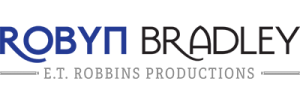Is it Homed In or Honed In? (The Answer Might Surprise You)
The “is it homed in or honed in” debate will never die. This is a note I received from a client. (Edited lightly for readability.)
Question: I think you made a mistake in my copy. You used the word “home in,” and I think it should be “hone in.” Here’s the sentence in question: “She knew exactly what area of the artwork to home in on.”
Listen, I make mistakes, and I’m not above admitting to them. (No copywriter or copy editor is perfect.) But this isn’t a mistake. So many people, including writers and editors, misuse the phrase “hone in.”
When you “hone” your skills, you improve them. When you “home in on something,” you aim your attention to a direct target (think of a homing device). In this example, “she” knew what area of the artwork to direct her attention to. So my original sentence is correct.
But honestly? I should have never used “home in” in the first place. Here’s why.
Plot twist to the “homed in or honed in” conundrum.
So many people say “honing in” now instead of “homing in” that “honing in” has become somewhat accepted. 😭
Language is fluid. Especially English. And this certainly isn’t the first example of mistakes becoming acceptable by the mainstream. (I’m looking at you, literally.)
Even if you decide to use the phrase correctly and say “home in” when you mean zeroing in on something, you might end up looking like the person who’s making a mistake since so many people misuse the term. (Frustrating, I know.)
That’s why I suggest you avoid using “homing in” altogether. Instead, say “zeroing in” or “focusing” (if it works) so that you can avoid confusion and the wrath of people’s ignorance.
So going back to the original sentence in question, here’s how I should have written it: “She knew exactly what area of the artwork to zero in on.” Or this: “She knew exactly what area of the artwork to focus on.”
Fun fact: I used to confuse home in vs. hone in ALL THE TIME, up until the early aughts when someone set me straight.
During a meeting with my writers’ group, someone used “hone in” when they should have used “home in.” Another writer in the group pointed out the error (nicely) and explained the difference. I took note back then, which is why I use it correctly now. (But I still have words that haunt me. For the life of me, I will never be able to keep “lay vs. lie” straight.)
Language is fun. Here are my go-to writing and editing resources.
Note: I use affiliate links for some of them. If you use one of the links to buy something, it won’t cost you more, but I’ll earn a small commission. I only recommend stuff that I believe in.
- Grammarly. The free version is great at catching critical errors. I used it for about a year before upgrading to the premium tier, and I’m glad I did. You can try the free version here (both are affiliate links; if you sign up, I’ll earn a small commission).
- A Writer’s Reference by Diana Hacker and Nancy Sommers. (Amazon affiliate link link.) I have the fifth edition, which is excellent. I’m thinking about upgrading to the 10th. Hacker was incredible. She died in 2004, but her memory lives on.
- Dreyer’s English: An Utterly Correct Guide to Clarity and Style by Benjamin Dreyer. (Amazon affiliate link.) Another gem. I gave this one to Mr. Word Nerd.
